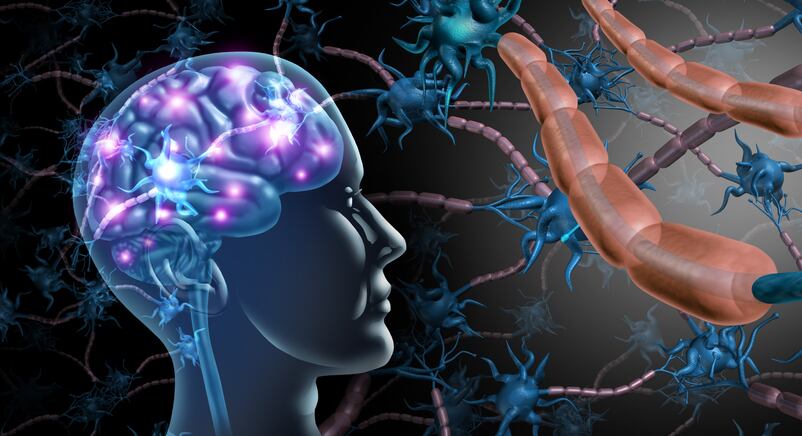Given the anti-inflammatory effects of probiotics, they have been widely researched as an adjuvant treatment option for the management of PD. However, previous clinical results have demonstrated that the effectiveness of probiotics in this population is variable.
The current meta-analysis aimed to analyse the quantitative effects of probiotics on gastrointestinal symptoms, inflammation, metabolic disease risk, and PD symptoms in patients.
The team of researchers, from Yonsei University College of Medicine, Korea, found high-quality evidence that probiotics significantly improve motor, non-motor PD symptoms, and depression.
They also found a "moderate quality of evidence" that probiotics significantly increase gastrointestinal motility, quality of life and reduce anxiety.
They note: "Probiotic supplementation may be an affordable and safe adjuvant treatment option for PD management. To establish more trustworthy evidence on the potential benefits of probiotics for PD, it is necessary to conduct larger randomized controlled trials and long-term follow-up studies.
"The studies should be subdivided based on factors such as the severity of the disease, type and dosage of probiotics, duration of intervention, and they should include assessments of motor and cognitive function as well as other predictors of disease."
This conclusion is published in the same week as a separate systematic review into gut health supplements and depression concluded more long-term studies are needed in order to achieve strong evidence in this area.
The gut-brain axis
The role of the gut–brain axis—a bidirectional connection between the enteric and central nervous systems—has garnered much attention.
Short-chain fatty acids (SCFAs) are major metabolites produced by microorganisms in the large intestine through anaerobic fermentation of undigested polysaccharides. SCFAs play an important role in maintaining intestinal barrier integrity, preventing microbial migration, and preventing inflammation by regulating the expression of tight junction proteins.
An imbalance in the gut flora due to increased harmful bacteria creates endotoxins (e.g., lipopolysaccharides [LPS]) and damages the intestinal barrier, thus triggering the migration of microorganisms and bacterial metabolites and consequently inducing pro-inflammatory pathways.
LPS also interact with intestinal glial cells and brain microglia cells to activate inflammatory cytokines, which in turn produce neuroinflammatory α-syn aggregation in the vagus nerve and brain. The vagus nerve directly innervates the myenteric plexus, where neurons run through the prevertebral ganglia within the spinal cord and finally to the brain.
According to Braak’s hypothesis, pathogens enter the oral and nasal cavities and initiate the formation of Lewy bodies, resulting in sporadic PD.
Review and analysis
This systematic review and meta-analysis searched PUBMED/MEDLINE, EMBASE, Cochrane, Scopus, and PsycINFO databases from inception until February 20 2023. A total of 11 randomized trials were included in the final analysis, involving a sample of 40 to 122 participants (average age between 66.5 and 75.6, all involving men and women) with idiopathic Parkinson's disease. The duration of probiotic administration ranged from 4 to 12 weeks and probiotics were administered in the form of fermented milk, capsules (the majority), or powder in sachets (one study).
All reported results were rated as having low selection bias.
The team found that the analysed studies provided: high-quality evidence that probiotics significantly improve motor, non-motor Parkinson's Disease symptoms, and depression; moderate evidence for probiotics increasing gastrointestinal motility and reducing anxiety; and low quality evidence for an impact on serum levels of inflammatory markers and risk of diabetes.
They conclude: "Stool quality, constipation, antioxidant marker level, and risk of dyslipidaemia were low or very low quality evidence, and there was no significant difference between the probiotic group and the control group.
"The improvement in gastrointestinal motility was greater when the probiotics were administered in capsules compared to when they were consumed in fermented milk forms.
"In addition, the longer the follow-up period, the better the gastrointestinal motility and mental health scores. These results suggest that probiotics can be considered as an adjuvant treatment option based on the pathophysiology of “gut dysbiosis” in patients with PD."
Limitations
This meta-analysis has several limitations. First, the number of studies and participants was small. To reduce heterogeneity between studies, the authors only included studies of participants diagnosed with idiopathic PD and excluded studies of patients with secondary parkinsonism, including a relatively small number of 840 patients.
They also found significant heterogeneity among studies. They attempted to account for this heterogeneity by utilizing a random effects model and performing subgroup analyses according to dosing method and follow-up period. However, heterogeneity remained high, suggesting additional sources of heterogeneity.
The report states: "Previous studies examining the different effects of probiotics reported that higher doses (≥ 1010 CFU), longer duration , and various strains of probiotics were more effective. We therefore attribute the considerable heterogeneity of our study to the diversity of study protocols, such as probiotic strains, dosage and duration of intervention, and method of administration."
They also note that the intervention durations of the included studies (ranging from 4 to 12 weeks) were short and insufficient to understand the long-term effects of probiotics and some of the studies included in the meta-analysis may have been from the same centre, which could have led to data overlap.
Source: Nutrients
https://doi.org/10.1186/s13099-023-00536-1
"Effect of probiotic supplementation on gastrointestinal motility, inflammation, motor, non-motor symptoms and mental health in Parkinson’s disease: a meta-analysis of randomized controlled trials"
Park, J.M., Lee, S.C., Ham, C. et al.


